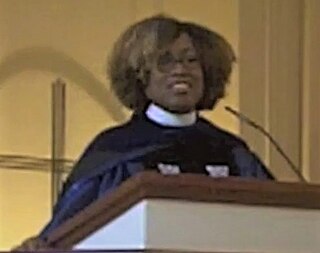Related Research Articles
Ethics in the Bible refers to the system(s) or theory(ies) produced by the study, interpretation, and evaluation of biblical morals, that are found in the Hebrew and Christian Bibles. It comprises a narrow part of the larger fields of Jewish and Christian ethics, which are themselves parts of the larger field of philosophical ethics. Ethics in the Bible is unlike other western ethical theories in that it is seldom overtly philosophical. It presents neither a systematic nor a formal deductive ethical argument. Instead, the Bible provides patterns of moral reasoning that focus on conduct and character in what is sometimes referred to as virtue ethics. This moral reasoning is part of a broad, normative covenantal tradition where duty and virtue are inextricably tied together in a mutually reinforcing manner.
Robert Bernard Alter is an American professor of Hebrew and comparative literature at the University of California, Berkeley, where he has taught since 1967. He published his translation of the Hebrew Bible in 2018.
Tikva Simone Frymer-Kensky was a professor at the University of Chicago Divinity School. She received her MA and PhD from Yale University. She had previously served on the faculties of Wayne State University, the Jewish Theological Seminary of America, Yale University, Ben Gurion University, and the Reconstructionist Rabbinical College, where she served as director of Biblical studies.
Tamar Ross is a professor of Jewish philosophy at Bar-Ilan University and a specialist of religious feminist philosophy.
Judith Plaskow is an American theologian, author, and activist known for being the first Jewish feminist theologian. After earning her doctorate at Yale University, she taught at Manhattan College for thirty-two years before becoming a professor emerita. She was one of the creators of the Journal for Feminist Studies in Religion and was its editor for the first ten years. She also helped to create B'not Esh, a Jewish feminist group that heavily inspired her writing, and a feminist section of the American Academy of Religion, an organization of which she was president in 1998.

Women in the Bible are wives, mothers and daughters, servants, slaves and prostitutes. As both victors and victims, some women in the Bible change the course of important events while others are powerless to affect even their own destinies. The majority of women in the Bible are anonymous and unnamed. Individual portraits of various women in the Bible show women in a variety of roles. The New Testament refers to a number of women in Jesus' inner circle, and he is generally seen by scholars as dealing with women with respect and even equality.
Gender and Jewish Studies is an emerging subfield at the intersection of gender studies, queer studies, and Jewish studies. Gender studies centers on interdisciplinary research on the phenomenon of gender. It focuses on cultural representations of gender and people's lived experience. Similarly, queer studies focuses on the cultural representations and lived experiences of queer identities to critique hetero-normative values of sex and sexuality. Jewish studies is a field that looks at Jews and Judaism, through such disciplines as history, anthropology, literary studies, linguistics, and sociology. As such, scholars of gender and Jewish studies are considering gender as the basis for understanding historical and contemporary Jewish societies. This field recognizes that much of recorded Jewish history and academic writing is told from the perspective of “the male Jew” and fails to accurately represent the diverse experiences of Jews with non-dominant gender identities.

Galit Hasan-Rokem is the Max and Margarethe Grunwald professor of folklore at the Mandel Institute of Jewish Studies at the Hebrew University of Jerusalem. Author and editor of numerous works, including co-editor of the Wiley-Blackwell Companion to Folklore (2012), her research interests include proverbs, folklore and culture of the Middle East, and folklore genres and narratives. She is also a published poet and translator of poetry, and a Pro-Palestinian activist. The Jerusalem Post has called her "a figure of some prominence in Jerusalem intellectual circles".
Yael S. Feldman is an American scholar and academic particularly known for her work in comparative literature and feminist Hebrew literary criticism. Feldman is known for her research on Hebrew culture, history of ideas, gender and cultural studies, and psychoanalytic criticism. She is currently the Abraham I. Katsh Professor Emerita of Hebrew Culture and Education in the Judaic Studies Department at New York University and an affiliated professor of Comparative Literature and Gender Studies. She is also a fellow of the American Academy for Jewish Research, and a visiting fellow at Wolfson College, Cambridge.
Jane Dewar Schaberg (1938–2012) was an American biblical scholar who served as Professor of Religious Studies and of Women's Studies at the University of Detroit Mercy from 1977 through 2009.

Athalya Brenner-Idan is a Dutch-Israeli biblical scholar known for her contribution to feminist biblical studies.
Adele Berlin is an American biblical scholar and Hebraist. Before her retirement, she was Robert H. Smith Professor of Biblical Studies at the University of Maryland.
Phyllis Trible is a feminist biblical scholar from Richmond, Virginia, United States. Trible's scholarship focuses on the Hebrew Bible and she is noted for her prominent influence on feminist biblical interpretation. Trible has written a multitude of books on interpretation of the Hebrew Bible, and has lectured around the world, including the United States, New Zealand, Australia, Japan, Canada, and a number of countries in Europe.
Marvin Alan Sweeney is Professor of Hebrew Bible at Claremont School of Theology (1994–present). Dr. Sweeney was trained under the tutelage of Rolf P. Knierim at Claremont Graduate University. He was a Yad ha-Nadiv/Barecha Foundation Post-Doctoral Fellow in Jewish Studies at the Hebrew University of Jerusalem, where he worked with Moshe Greenberg (1989-1990); a Lilly Theological Research Grant Recipient (1997-1998); and a Fellow of the Summer Institute for Modern Israel Studies, sponsored by the American Jewish Committee and Brandeis University (2004). Sweeney previously taught in the Religious Studies Department and Judaic Studies Program at the University of Miami in Coral Gables, FL (1983-1994), and he has served as Dorot Research Professor at the W. F. Albright Institute in Jerusalem, Israel (1993-1994); Visiting Professor of Bible at the Hebrew Union College—Jewish Institute of Religion, Los Angeles, CA ; Underwood Professor of Divinity at Yonsei University in Seoul, Korea (2011); visiting scholar at Chang Jung Christian University in Tainan, Taiwan (2015); and Professor of Tanak at the Academy for Jewish Religion California, Los Angeles, CA (2000-2019). He also serves on the faculty of Religion at Claremont Graduate University (1994–present). In 2019, Sweeney relocated to Salem, Oregon, due to the attempted transfer of Claremont School of Theology to Willamette University.
The Hebrew Bible contains a number of references to rape and other forms of sexual violence, both in the Law of Moses, its historical narratives and its prophetic poetry.

The daughters of the biblical patriarch Lot appear in chapter 19 of the Book of Genesis, in two connected stories. In the first, Lot offers his daughters to a Sodomite mob; in the second, his daughters have sex with Lot without his knowledge to bear him children.

Esther Eillam was a central figure in Israeli feminism from its inception. Eillam's activism and her writings on feminism and social justice have garnered her awards and recognition, including an honorary doctorate from the Hebrew University of Jerusalem.

Hannah Safran is an Israeli feminist, activist and researcher. She is one of the founders of the Coalition of Women for Peace and Women in Black.
Nyasha Junior is an American biblical scholar. Her research focuses on the connections between religion, race, and gender within the Hebrew Bible. She holds a PhD from Princeton Theological Seminary. She was associate professor at Temple University before moving to the University of Toronto in the department for the Study of Religion. She was a visiting associate professor and research associate at Harvard Divinity School for the 2020–21 academic year.

Wilda C. Gafney, also known as Wil Gafney, is an American biblical scholar and Episcopal priest who is the Right Rev. Sam B. Hulsey Professor of Hebrew Bible at Brite Divinity School of Texas Christian University in Fort Worth, Texas. She is specialist in womanist biblical interpretation, and topics including gender and race.
References
- 1 2 Everett-Haynes, La Monica. "UA Professor Explores Feminist Interpretation of Bible". University of Arizona . Retrieved 9 July 2015.
- ↑ "About the Editor". Israeli Women's Studies: A Reader. Rutgers University Press. 2005. p. 331. ISBN 9780813536163 . Retrieved 9 July 2015.